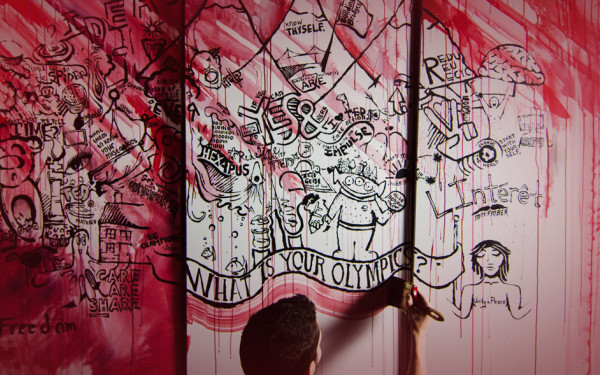The Age of Collaboration
The Macrowiki World is Upon Us: Don Tapscott
Don Tapscott is an author, media theorist and optimist.
The author of Macrowikinomics thinks the world has finally had the wakeup call it has been waiting for after having barely avoided the collapse of the global economy in 2008.
“The economic crisis was really a convulsive shock to the system that I hope will cause a rethinking of all these institutions, from health care and education, to science and government,” Tapscott said, sitting in the café of a hotel in Old Montreal.
“The crisis accelerated a lot of secular changes that were happening.”
A future of collaboration and openness has already arrived for many people under the age of 30. The current generation of smart-phone toting, tweeting, compulsive Facebook users has already embraced the world of Macrowikinomics.
Tapscott thinks it’s time for the rest of the world to adapt to the new age of collaboration.
“The industrial economy and its institutions are clearly running out of gas, that model can’t take us forward,” said Tapscott. “Whether it is the model of the newspaper, government or global problem solving, these things appear to be in atrophy.
“On the other hand, you have this new communications medium that is enabling whole new models of how things get done in the world. Everywhere, these sparkling new initiatives are underway.”
With Wikileaks keeping governments honest, Threadless transforming how art is made and Wikipedia codifying the world’s knowledge, the age of collaboration has put a printing press into every bedroom and opened a plethora of new opportunities.
To digital natives—those born into the Internet—these ideas and institutions might seem natural, but they are revolutionary, according to Tapscott.
“We can rebuild our institutions around collaboration, openness and interdependence. If there is anything we have learned in this crisis, business can’t succeed in a world that is failing.”
Despite all the promise and opportunities provided by collaboration, Tapscott warned that a future with smart-phones in every pocket could also hold a dark side.
“If we want it to map the galaxy, it will do that. If we want it to organize Tea Party events where the big idea is to end public education, then it will do that too,” Tapscott said.
Creating more dialogue and a constant link with the rest of the world will not create a less polarized society, but it will provide a way for everyone to be involved in how society is shaped. Even in formerly elitist circles like the media, the Internet has thrown open the doors, allowing everyone to contribute.
“The old media was one way and it was from one to many. It was centralized and it was controlled. The old expression goes, ‘Freedom of the press is a great idea, especially when you own a press.’
“The new media is the antithesis of all that. It is highly distributed. It is one to one. It is many to many. It is highly decentralized and it has this awesome neutrality, where it will be what we want it to be,” said Tapscott.
The impact of this change has been clear on the media. Advertising revenue is down, newspapers have been forced to close and reporters are travelling less and staying at their desks longer. With blogs and the Internet making information ubiquitous, it is also becoming nearly worthless.
“This is a time of great destruction and great volatility, you are going to see all kinds of crazy things happen,” said Tapscott. “Old institutions will fight this.”
The most visible part of that fight is taking place in the workplace.
“Young people are going to make this happen, it won’t be old people. My generation blew it, we are leaving you guys with a mess,” said Tapscott.
“If we don’t wake up and provide leadership during this change, instead of fighting it, we may see a clash. In the workplace, a generational clash is shaping up.
“Young people are coming into the workforce and they are smart, collaborative, they have a new culture of collaboration. They are bright eyed and happy to have a job, they are roaring to go and what do we do? We stick them in a cubicle, we try to supervise them, treat them like Dilbert and ban their tools.”
Everything from low attendance in classrooms to young people not voting comes from their lack of identification with an industrial system that is collapsing.
Why vote when you can cause change through direct civic engagement like protests and flash mobs? Why attend class and sit through a TA who doesn’t know the answers when you can go directly to the source the teacher is consulting?
“Democracy is in danger of being irrelevant,” said Tapscott. “I am very concerned, we have a generational class and a clash of old and new. The timing of the two is coincidental, but I am worried.”
This article originally appeared in Volume 31, Issue 09, published October 12, 2010.

_900_527_90.jpg)





